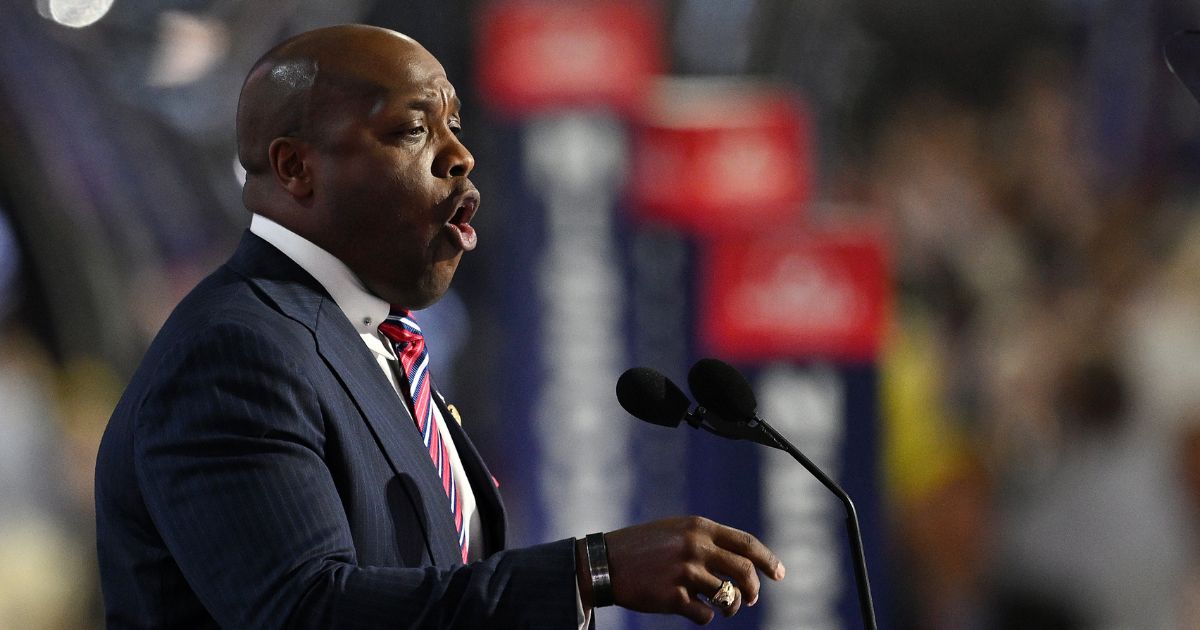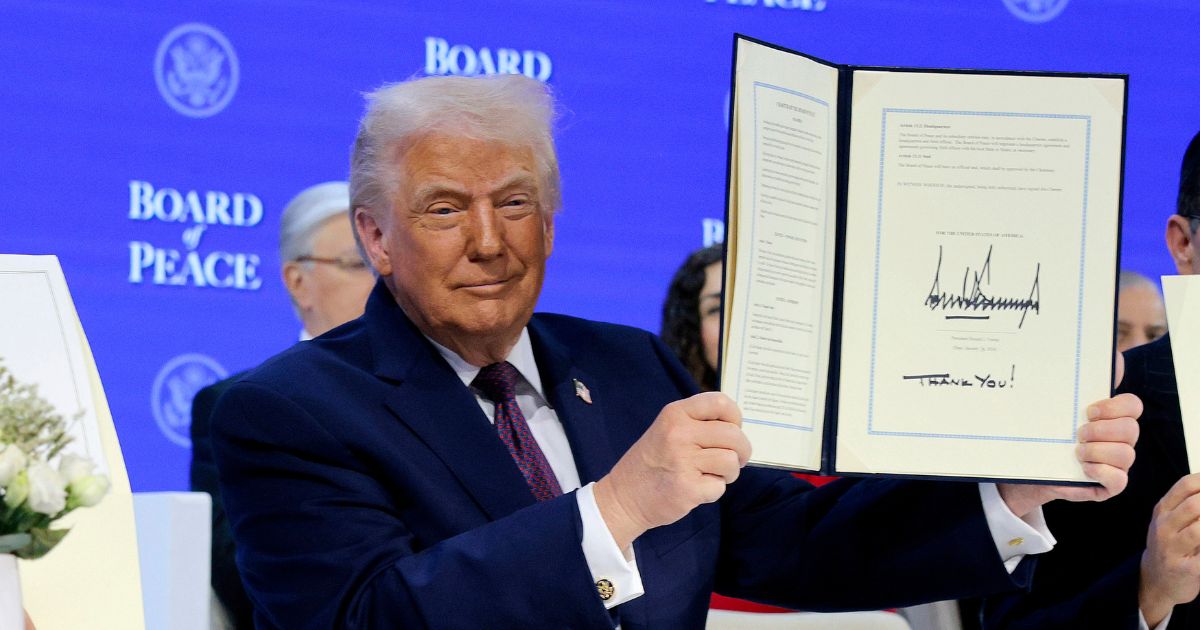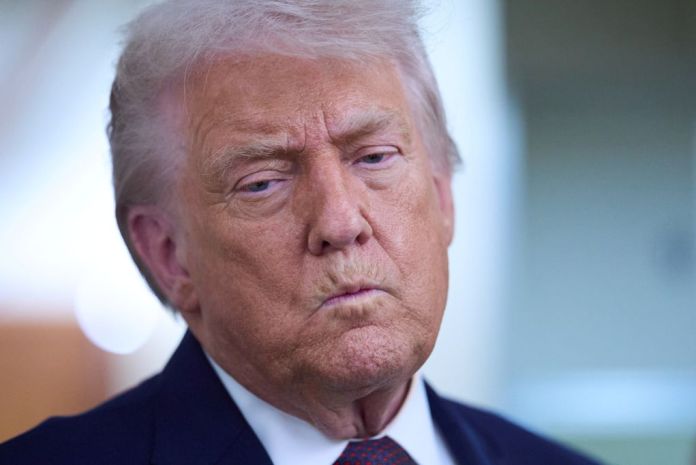Senate grows anxious as Johnson grapples with shutdown showdown – Washington Examiner
Senators from both parties are closely watching House Speaker Mike Johnson (R-LA) as he navigates a contentious government funding issue with hard-line Republicans. While senators are currently allowing Johnson some space to negotiate a short-term spending deal, they warn that they may have to intervene soon to prevent a government shutdown scheduled for October 1. Senate Majority Leader Chuck Schumer (D-NY) expressed confidence in bipartisan collaboration among appropriators, while Senator John Cornyn (R-TX) expressed skepticism about the House’s ability to pass a bill amidst internal opposition.
The proposed stopgap funding measure, known as a continuing resolution, would maintain current spending levels and delay the approval of a full fiscal year budget. This approach, however, faces criticism, particularly concerning additional voter registration requirements proposed by Republicans, which Democrats oppose. Senate leaders are leaning towards a shorter continuing resolution that would last until the December elections, as extended delays could impact military readiness.
The debate over government funding is significant not only for current operations but also for upcoming GOP leadership dynamics in the Senate, as several senators position themselves as potential successors to Mitch McConnell (R-KY), who plans to step down after this election cycle. As the situation unfolds, the outcome could influence party positioning and legislative strategy in the near future.
Senators grow anxious as Mike Johnson grapples with shutdown showdown
House Speaker Mike Johnson’s (R-LA) latest government funding feud with hard-line Republicans has senators lying in wait — for now.
Top senators in both parties are giving Johnson space to negotiate a short-term spending deal, but they warn that the upper chamber may soon be forced to step in to avert an Oct. 1 shutdown.
“Fortunately, in this body at least, the Democratic and Republican appropriators have a very good track record of working together,” Senate Majority Leader Chuck Schumer (D-NY) said Thursday.
Sen. John Cornyn (R-TX), a contender to be the next Senate GOP leader, signaled pessimism with the House up against a ticking clock.
“My friends in the House tell me that they don’t know whether they’re going to be able to generate a bill,” Cornyn told the Washington Examiner. “Maybe the Senate is going to have to do that.”
In the latest reminder that his majority is but a handful of votes, Johnson this week was forced to scrap the vote on a stopgap measure known as a continuing resolution in the face of Republican blowback and demands to slash spending. House Republicans will work through the weekend in hopes of resolving the matter.
The continuing resolution, which is paired with the GOP’s Safeguard American Voter Eligibility Act to require additional layers of citizenship proof for voter registration, would fund the government at current spending levels until late March and punt a full fiscal year budget until the next administration, which Republicans hope former President Donald Trump wins.
But the bipartisan consensus in the Senate is for a continuing resolution until after the election in December, at which point Congress could approve full-year spending. Senate leaders on both sides of the aisle agree that a longer stopgap jeopardizes military readiness, and the SAVE Act is a nonstarter for Democrats.
“I’m waiting to see what the House’s next plan is,” Sen. Susan Collins (R-ME), the top Republican on the Senate Appropriations Committee, told the Washington Examiner. “Regardless of who wins the presidential election, we should be presenting them with a clean slate. They should not have the burden of dealing with issues related to a fiscal year that began in October.”
Sen. Josh Hawley (R-MO) echoed her “clean slate” argument, underscoring the breadth of support among Senate Republicans across the ideological spectrum for a shorter continuing resolution.
Senate Minority Leader John Thune (R-SD) expressed optimism the House will “come together behind a plan” next week.
“We’re trying to give the House some space,” Thune said. “At some point, I think we all agree we have to fund the government.”
Funding the government will be Congress’s last major policy fight before embarking on recess until after the Nov. 5 election. The episode could have ramifications on the GOP leader race that’s been festering in the Senate since Minority Leader Mitch McConnell (R-KY) announced in February he’d be stepping down from his role post-election once Republicans choose a successor.
Cornyn, who’s previously held various leadership positions, and Thune are gunning for the job, as is the more conservative rabble-rouser, Sen. Rick Scott (R-FL).
“We know all these people running for leader really well. I think this is one little piece of the puzzle,” Sen. Roger Marshall (R-KS) said. “I do think it’s a place that someone could separate themselves, but I don’t think it’ll be the deciding final factor.”
Some Democrats, including the vulnerable Sen. John Tester (D-MT), who is up for reelection, and centrists like Collins support the SAVE Act. But Tester said he would only vote for it separate from a must-pass continuing resolution.
Democrats more broadly oppose the measure that they characterize as “fearmongering” over illegal immigration and argue it’s unnecessary because noncitizens are already barred from voting in federal elections.
Schumer declined to lay out his specific obligations to the SAVE Act or whether he’s considering holding a stand-alone vote. Instead, he reemphasized that the only path forward to avoid a shutdown in a divided Congress is for a stopgap without policy riders.
“We need a bipartisan bill where everyone comes together and figures out what to do,” Schumer said. “As you’ve seen the chaos in the House, because Speaker Johnson is trying to do this in a partisan way guided by the far Right, he’s not getting anywhere.”
David Sivak contributed to this report.
" Conservative News Daily does not always share or support the views and opinions expressed here; they are just those of the writer."




